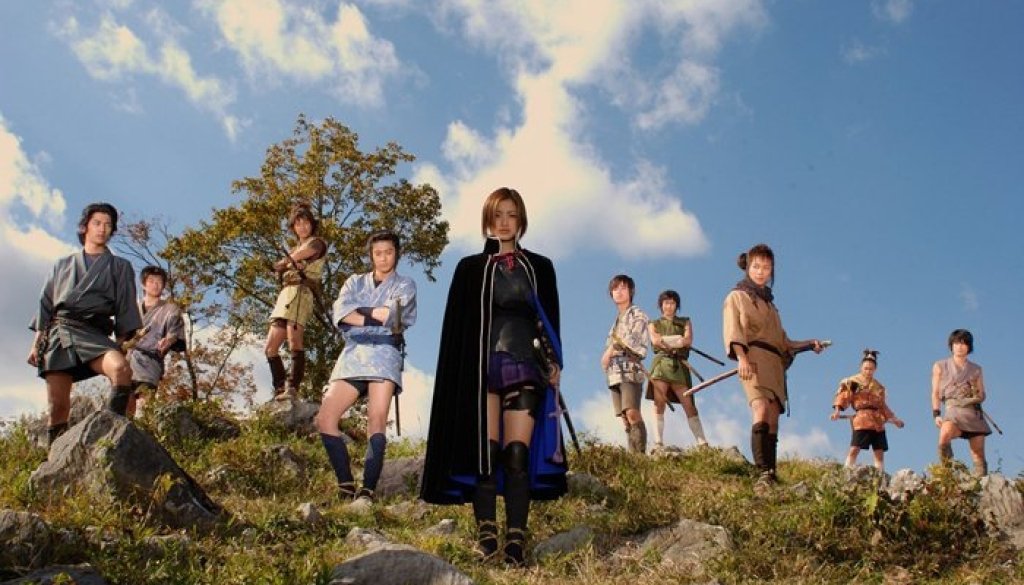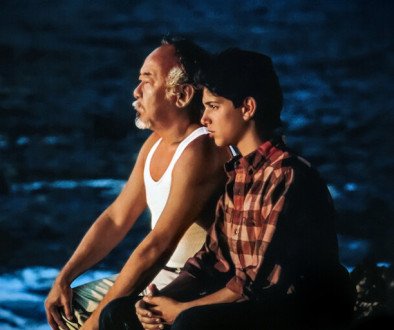The Movies That Moved Me: Ryuhei Kitamura’s AZUMI
Life after the new millenium was a transformational period for me. I got hit by a car that jumped the sidewalk and nearly killed me in 2003, and spent six months in and out of the hospital, recovering from injuries that kept accumulating that were relevant to my recovery. Eventually I went back to school and spent a lot of my time in a fanclub attribited to sci-fi, anime and gaming, which is how I discovered the work of director Ryuhei Kitamura before that fateful year, having caught onto his 2001 film, Versus.
Over the next several years my time in Asian film spaces would increase and I found myself chasing more and more Asian titles, past and present, and mainly anything that spoke to me as an action fan. His 2003 film, Azumi, would be one of the blindest buys I’d ever stumble upon while at a Korean bookstore during this period, and I bought it recognizing the cover after months of browsing online at DVD websites and being familiar with Kitamura already. And, it was a good thing that I had a region free DVD player that could play imported discs, otherwise I’dve been cooked.
The story, based on Yu Koyama’s serialized manga which ran from 1994 through 2008, is set in war-torn feudal Japan and follows a decemvirate of orphans trained as assassins under the stern guidance of Master Gessai (Yoshio Harada). Tasked with killing two warlords, Gessai’s years of training spawns generational trauma as the group is halved under Gessai’s instruction as the last lesson of their training. Their quest throughout the land brings danger, death, and troubling introspection as life away from home reveals tenuous peace and reflection over what life would have been like away from violence and bloodshed. As the warlords pick up on their activity and send mercenaries and ninjas their way, any chance of a peaceful life is short-lived with the group’s most prospective swordswoman, Azumi, forced to face down an army of ronin and soldiers all led by a sadistic bloodthirsty killer.
I love this movie. It’s one of the biggest high marks for me from a period of Asian film that I desperately wanted to be a part of, and a community I never really got to join due to proximity and other hinderances. I would even go as far as to say that Azumi is Kitamura’s best film next to Versus, in that it antes-up the stakes with some of the biggest set-pieces I’ve ever seen, a screenplay that captivates you, and stellar action direction with leading lady Aya Ueto performing with sheer elegance and grace, and doing our red-haired protagonist tons of justice. Co-star Joe Odagiri’s menacing role as the nefarious rose-peddling Bijomaru Mogami hands audiences one of the most impressive screen performances you’ll ever see as a villain whose bloodlust rightly matches our heroine’s quest for justice, setting the stage for the ultimate showdown, and a death scene whose laughable ridicilousness is made entirely forgiveable by Kitamura’s bold, and creatively tactful vision.
And you know what? The worst thing about this movie is that it is nowhere available to legally stream or digitally rent or buy in the U.S., nor has it been licensed by anyone for a Blu-Ray or 4K UHD revival. At best, you can find it available on standard DVD at some retail website by some schmuck charging as much as you would pay for a new boutique film release on new media, while I can only hope that the current state of this film’s availability changes somehow. SOMEHOW.
Azumi mesmerized me in my twenties, and contributed greatly to the film fan I am today. Additionally, and not for nothing – I do love a good title track, and Mina Ganaha’s “Negai” puts you right at ease with the film’s message and delivery.
Native New Yorker. Been writing for a long time now, and I enjoy what I do. Be nice to me!





